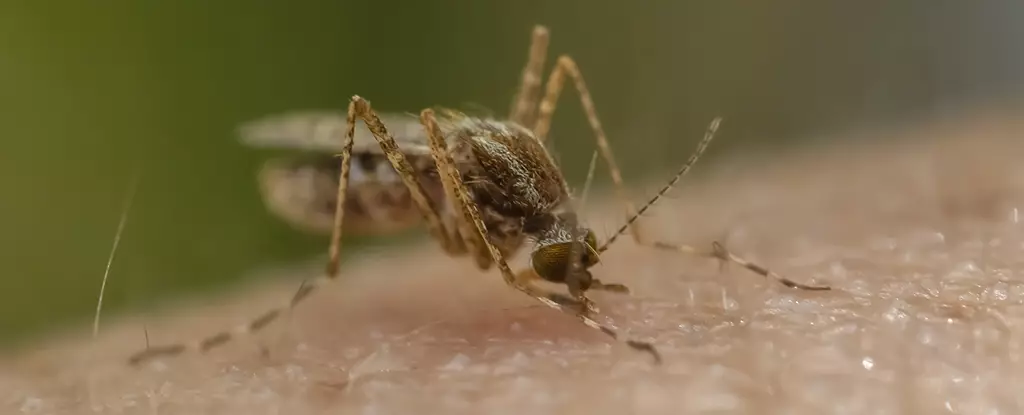Malaria, a disease primarily transmitted by mosquitoes, has long been a bane to humanity, causing millions to suffer and hundreds of thousands to perish annually. In a groundbreaking study spearheaded by researchers from Leiden University and Radboud University in the Netherlands, an innovative vaccine has shown promise in significantly enhancing protection against malaria, challenging the long-held notion that mosquitoes are solely disease carriers. This article delves into the study’s implications and the potential futures of malaria prevention strategies.
Traditionally, malaria vaccines have offered limited efficacy, often averaging protection rates of just 50 to 77 percent. However, the new vaccine, known as GA2, is a second-generation formulation that employs a genetically weakened strain of the Plasmodium falciparum parasite—the primary cause of malaria in humans. Unlike traditional vaccines, GA2 utilizes a clever method: administering the vaccine through the bite of a modified mosquito. This approach allows the weakened parasites to enter the liver, where they initiate a preparatory immune response without causing disease symptoms.
The genius of this mechanism lies in the parasite’s impaired development. The GA2 version of the parasite notoriously takes nearly a week to mature within the liver, in stark contrast to the 24 hours observed with its predecessor, GA1. This extended maturation period allows the immune system additional time to identify the intruder and mount a robust defense, resulting in heightened protection against subsequent malaria exposures.
The study’s outcomes have been nothing short of remarkable. Eight out of nine young adults who received the GA2 vaccine demonstrated immunity to malaria, a stark contrast to the findings with GA1, where only one in eight participants achieved similar protection. These figures not only signify an improved vaccine but hint at a potential paradigm shift in the way vaccines are formulated against vector-borne diseases.
The diversity and magnitude of the immune response elicited by the GA2 vaccine can be attributed to its unique approach. The researchers observed an increase in the generation of various immune cells, which play a critical role in the body’s defense against pathogens. This understanding lays the groundwork for refining future vaccines and exploring other diseases that may benefit from similar methodologies.
Side Effects and Considerations
While the prospect of a more effective malaria vaccine is exhilarating, the study also carefully considered potential drawbacks. The side effects documented were mainly modest, involving redness and irritation at the site of the mosquito bite. Following the conclusion of the study, all participants received a standard course of anti-malaria drugs as a precautionary measure, demonstrating a commitment to participant safety and health.
Despite these promising results, the researchers acknowledge a significant hurdle: the practicality of deploying such a vaccine on a mass scale remains questionable. The reliance on mosquito delivery complicates the logistics of vaccination programs. Nevertheless, the scientific community’s enthusiasm surrounding the new vaccine is palpable, and further research is expected to clarify whether this method can be effectively adapted for widespread use.
The Continuing Battle Against Malaria
Malaria continues to be a global health crisis, with nearly 250 million cases reported each year and a freefall of preventable deaths. The emergence of new vaccines such as GA2 represents a hopeful beacon in the ongoing fight against this age-old disease. As scientists dissect the underlying mechanisms of the vaccine’s success, they might unlock potent strategies to combat malaria and potentially other vector-borne illnesses.
This development is indicative of the broader push to innovate within the field of vaccines and therapeutics, particularly for diseases transmitted through insects. The study not only exemplifies the ingenuity of scientific inquiry but also serves as a reminder that progress is achievable—even against seemingly insurmountable challenges like malaria. With continued research and a focus on effective solutions, the quest for a malaria-free world could become a reality.


Leave a Reply